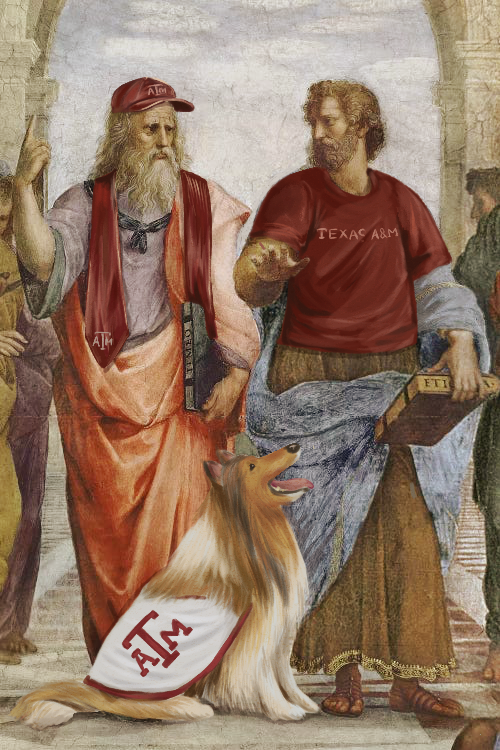Let’s face it: There’s more than a one-in-three chance you’re not going to a real university for most of your time in college, even if you’re at Texas A&M.
“Wait a second,” you might be thinking, “Obviously I’m going to a university! It’s literally in the name, Texas A&M University!”
The reality of language is that the names of things often tell us very little about what they really are or how they function. When was the last time the Democratic People’s Republic of North Korea had a free election?
During the Fall 2023 semester, at least 30,000 of A&M’s roughly 77,000 students were enrolled in the Engineering College or the Mays Business School; that’s about 39% of the student population. All of these students, regardless of the department they were enrolled in, had degree programs that possessed some core curriculum requirements but ultimately did not — and still do not — have many courses that have traditionally been part of a full university program. Among these unrepresented courses we might see history, Spanish, economics, philosophy, or a whole host of other subjects that students have historically had exposure to.
I would wager that the majority of students enroll in these truncated degree programs not to cultivate their own understanding but instead as a means to a financial end. They attend a university as if it were really a trade school and not a place where students come to truly learn. As someone who was initially admitted to the Mays Business School before transferring to the philosophy department, I have seen what that analysis looks like.
Perhaps there are exceptions, but I was not particularly interested in understanding the fundamental nature of stock options and derivatives for their own sake but rather as a means to make money in a way I found somewhat interesting.
What we think of as a university today has its origins in the Middle Ages. At the time, they primarily taught liberal arts subjects such as grammar, logic, geometry, astronomy and music. Only after completing these could a student proceed to an area of study such as medicine, law or theology.
These ancient universities imbibed the Aristotelian view that some kinds of knowledge are good for their own sake; that a student can and should learn about the order of things in the universe for no other reason than to learn.
That all changed during the Industrial Revolution. Factories were built — and all that was needed was for employees to do what they were told. Personal development could be set to the side, and as the world was brought into relative prosperity, many who went to universities stopped caring about the pursuit of knowledge.
Do not misunderstand me: I am not suggesting that engineering, business and other related disciplines do not have a place in higher education. Nor am I asserting that you should switch majors.
But meaninglessness is an issue for our generation. In 2019, some 70% of teenagers said anxiety and depression are “major problems” among their peers. Although not all of this is due to feelings of meaninglessness, the influence of nihilism is ubiquitous throughout Gen Z culture.
Combatting meaninglessness can be as simple as doing something you love.
For many of us, the financial aspects are important to consider. However, there is a time when the desire for financial success can be a detriment to our personal understanding and well-being — something not worth pursuing.
If you’re interested in the liberal arts or a similar discipline, there’s a good chance that your family may not want you to study something “useless.” You might feel forced to abandon your passions in favor of the financially superior option.
You don’t have to listen to them.
The reality is that your life is under your control, and your personal well-being — if you tie it closely to your academic passions — may be just as important as a marginal gain in your yearly income.
Enroll in that history minor. Take that philosophy course. Study something you care about or join a club for your personal enrichment. Be responsible, but realize that before you learn how to do something, you must understand why you should do it.
This time in college is an incredible opportunity to know yourself — to change yourself and others. Seize the opportunity while it’s present. Don’t let this chance be a wasted one.
Kaleb Blizzard is a philosophy sophomore and opinion writer for The Battalion.

















Nicolas Arturo Rocha • Sep 30, 2024 at 10:06 pm
Very inciteful!